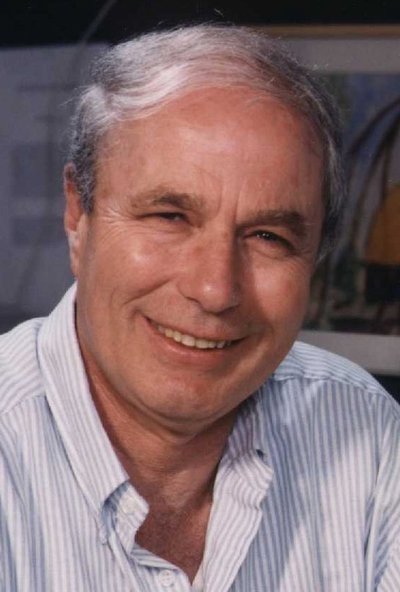May 1, 2008
Avram Hershko to give the Hans Neurath Lecture on May 8
Avram Hershko, professor of biochemistry at the Technion-Israel Institute of Technology in Haifa, and 2004 Nobel Laureate in Chemistry, will give the 24th Annual Hans Neurath Lecture on Thursday, May 8, from 4 to 5 pm in Foege Auditorium (S-060) of the Genome Sciences Building. The title of his lecture is “The Ubiquitin System for Protein Degradation and its Roles in cell Cycle Control.”
Hershko studied medicine and biochemistry at the Hebrew University – Hadassah Medical School. He completed his medical degree in 1965 and his doctoral degree in 1969. Hershko first became fascinated by protein degradation as a postdoctoral fellow with Gordon Tomkins at University of California in San Francisco. In 1971, he returned to Israel as chair of biochemistry at the new medical school in Haifa. There he and his research group, and especially his graduate student Aaron Ciechanover, labored to recreate and fractionate energy-dependent protein degradation in vitro.
Once the basic biochemistry of ubiquitin-mediated protein degradation had been elucidated, Hershko became interested in the role of protein degradation in the cell division cycle. He began spending summers at the Marine Biological Laboratory in Woods Hole because the surf clam oocyte system faithfully reproduced cell cycle events in vitro. This work led to the discovery of the Anaphase-Promoting Complex.
Unlike many successful scientists who ultimately forsake the pipet for the keyboard, Hershko writes that “Benchwork is my great hobby… I have always loved to do experiments with my own hands, both for peace of mind and for excitement.”
Hershko has received many honors including Weizmann Prize for Sciences, 1987; the Israel Prize in Biochemistry, 1994; the Gairdner International Award (with Alexander Varshavsky), 1999; the Albert Lasker Award for Basic Medical Research (with Aaron Ciechanover and Varshavsky), 2000; the Louisa Gross Horwitz Prize from Columbia University, 2001; the Wolf Prize in Medicine, 2001; election as a Foreign Associate, US National Academy of Sciences, 2003; and the 2004 Nobel Prize in Chemistry which he shared with Aaron Chiechanover and Irwin Rose.
(Adapted by Alan Weiner, chair of the UW Department of Biochemistry, from Hershko’s Nobel Foundation autobiolgraphy.)

